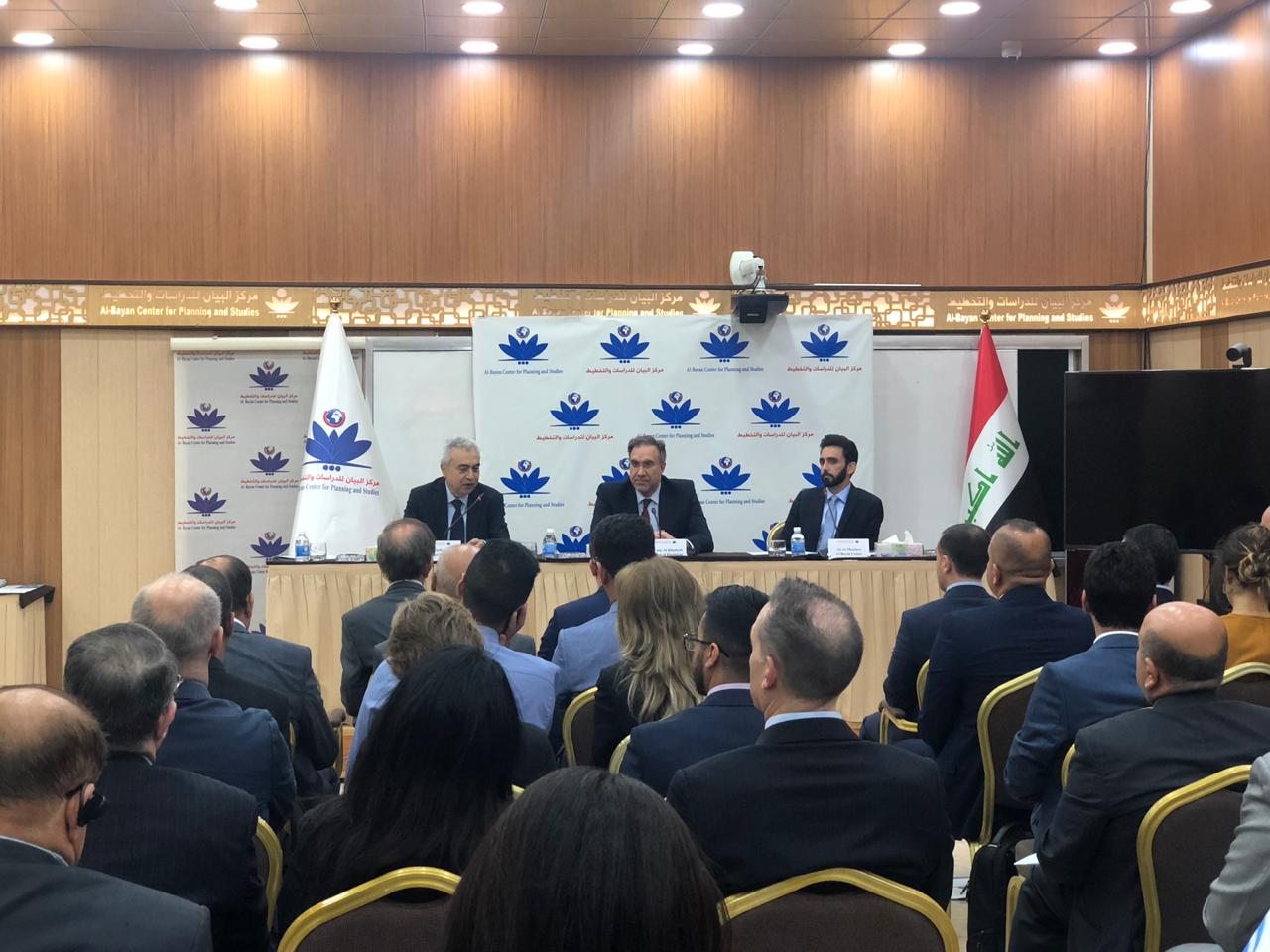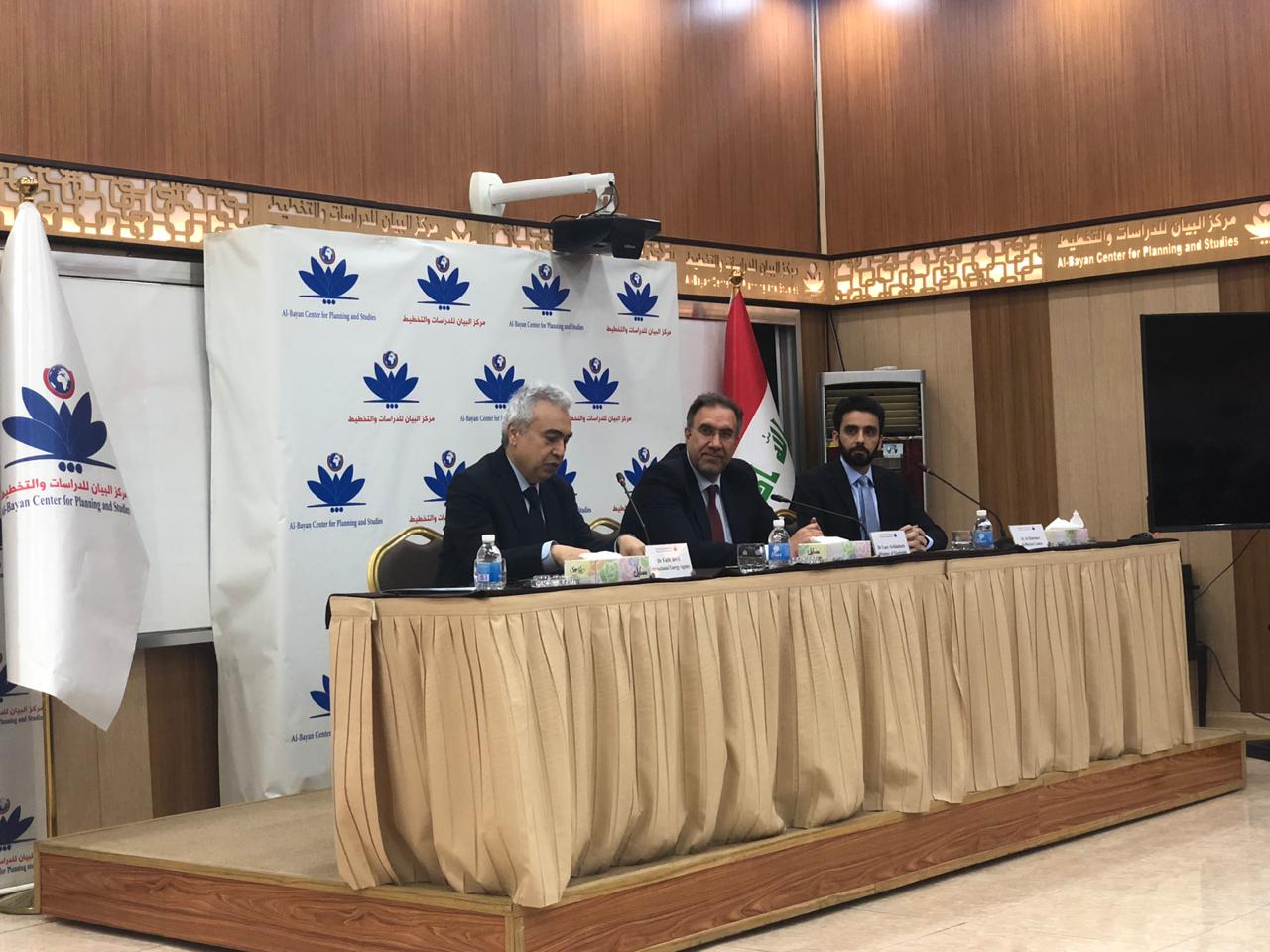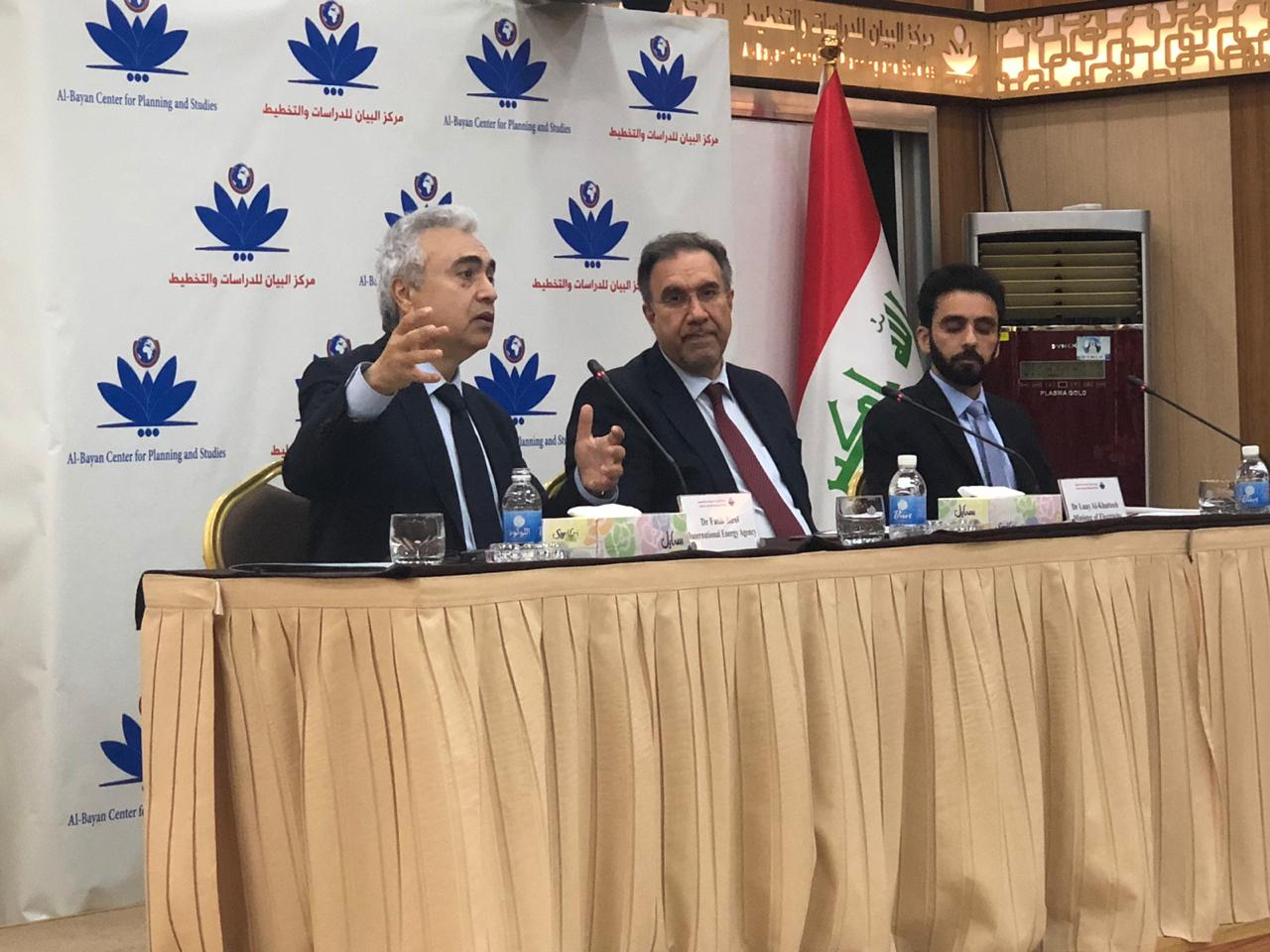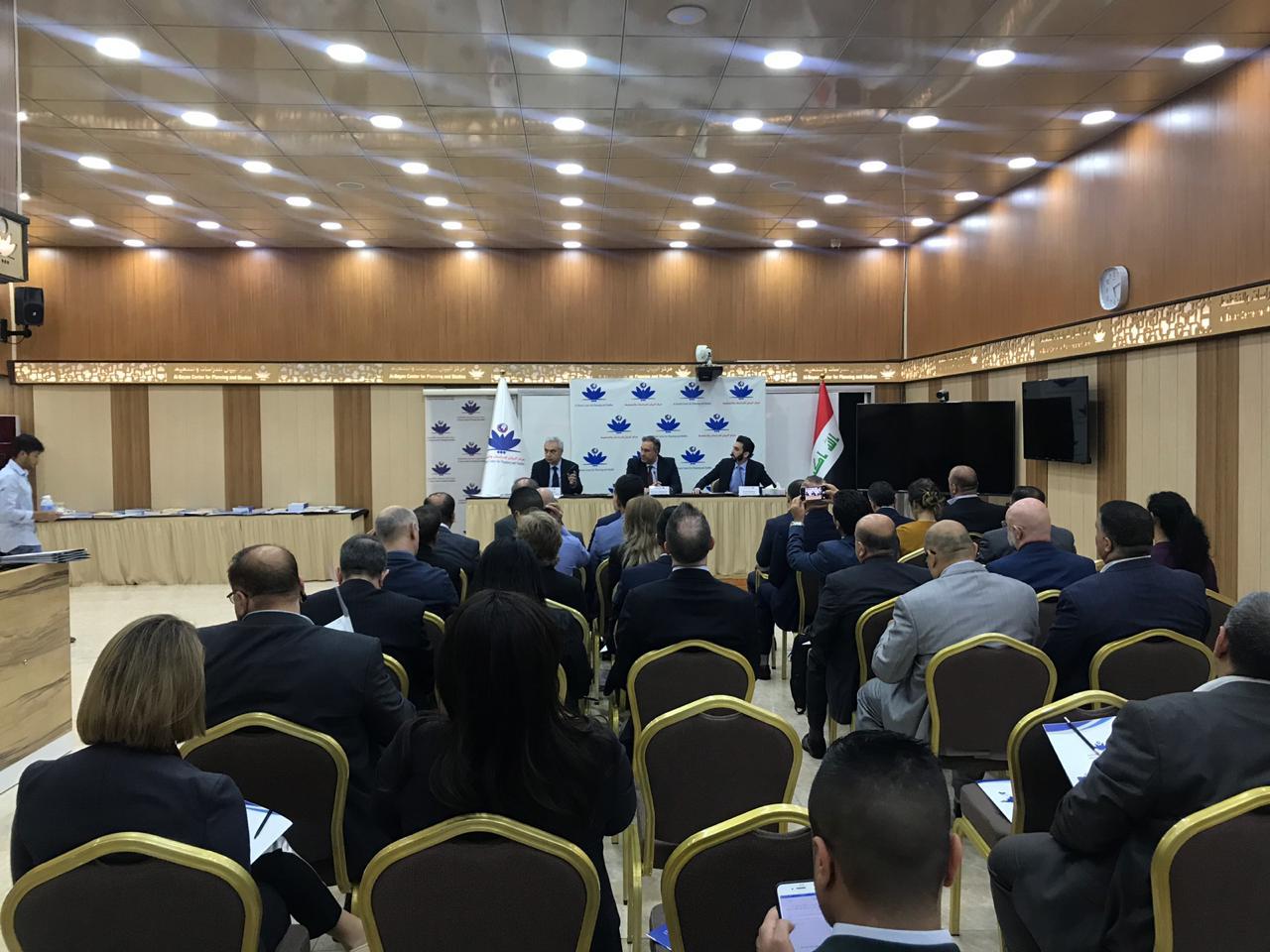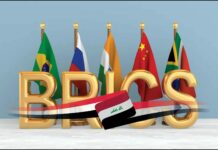Al-Bayan Center hosted a public seminar to mark the launch of a comprehensive report on Iraq by the International Energy Agency (IEA) on the country’s energy prospects.
The event featured the executive director of the IEA, Dr Fatih Birol, and H.E. the Minister of Electricity, Dr Luay Al-Khatteeb.
The IEA’s report provides a practical roadmap to address Iraq’s electricity shortfall and details how the country can make use of its vast energy potential by optimizing oil and natural gas production, as well as solar power generation.
The speakers outlined the short and medium term challenges to developing Iraq’s energy sector. Dr Al-Khatteeb explained how the war against Daesh had led to significant losses in power generation and transmission, and outlined some of the new initiatives that would be introduced by the Ministry of Electricity to enhance the efficiency of grid supply through investment in renewable energy. Dr Birol discussed the transformations in the global energy system and how it would impact Iraq’s position as a leading oil producer. According to the IEA, oil production is expected to grow by 1.3 million barrels a day by 2030. Dr Birol noted that by introducing more progressive tariffs and reforming the use of private generators, Iraq’s power sector could be modernized to meet growing public demand.
The event also included comments and questions from the audience, touching on a variety of issues including the potential for the IEA to expand its work in Iraq, and how the Ministry of Electricity could promote better efficiency in power consumption.
The executive summary and recommendations of the IEA’s report can be found here.
Al-Bayan Center is committed to engaging with both Iraqi policymakers and the international community on addressing the multitude of challenges facing Iraq by conducting public policy research that seeks to reform the country’s institutional capacity.
